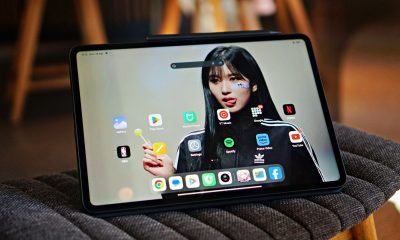Enterprise
Blizzard in deep trouble for supporting China
Update: Blizzard eases sanctions against Blitzchung

The American corporate world is in a state of crisis caused by the tension between China and America. In the middle of this heightened Sino-American corporate war, Hong Kong lies in the middle, eagerly awaiting its democratic victory against Chinese authoritarianism. Because of the immensity of the geopolitical issue, individuals have inevitably expressed their opinions on the matter through public avenues.
Recently, individual opinions are getting in the way of corporate profits, especially for the companies that these individuals represent. From slaps on the wrist to outlandish punitive measures, American companies are putting a clamp on anti-China sentiments. The US is discovering where their favorite companies’ loyalties really lie — with the American people or with the Chinese government.
Blizzard: too cool for Hong Kong
Among these controversial companies, Blizzard Entertainment is fueling a significant portion of the dispute. Last weekend, the company held a Hearthstone tournament in Taiwan. The winner, Blitzchung (real name: Chung Ng Wai), expressed pro-HK opinions during his victory speech: “Liberate Hong Kong, revolution of our age.”
[BREAKING] Hong Kong Hearthstone player @blitzchungHS calls for liberation of his country in post-game interview:https://t.co/3AgQAaPioj
@Matthieist #Hearthstone pic.twitter.com/DnaMSEaM4g
— Inven Global (@InvenGlobal) October 6, 2019
Days later, Blizzard Entertainment issued steep punishments against Blitzchung: stripping him of his prize money and banning him from competitive play for a year. The company has also fired the two broadcasters involved in the interview. Blizzard has deleted the official interview from their accounts.
“I don’t regret saying that stuff. And even now, I don’t regret it at all.” In defense of his actions, Blitzchung has expressed the necessity of his opinions. “I shouldn’t be scared. I hope my act can inspire other gamers like me, to continue to support the movement in Hong Kong,” he told AFP.
According to Blizzard, Blitzchung’s voiced opinion “offends a portion or group of the public, or otherwise damages [Blizzard’s] images,” warranting the fine and the ban. Curiously, the company did not say if the ban results from any Chinese intervention.
#BoycottBlizzard
Since then, Blizzard’s actions have sparked global outrage, accusing the company of political favoritism rather than supporting its customers or representatives. Many individual personalities have boycotted the company’s products including the highly popular MMORPG World of Warcraft and the competitive shooter Overwatch.
My photoshops are nothing if not both lazy and fast, but still.#HongKongProtest #Blizzardboycott pic.twitter.com/nsE1VWl0e3
— Kaipo 🐀 (@Kaipo_Rozwolf) October 8, 2019
Some Overwatch players have even started using the game’s Chinese character, Mei, as a pro-HK icon. In the game, Mei — and the other characters — are largely apolitical regarding real-world politics. The game is set in a futuristic world with anthropomorphic gorillas and conscious robots. In creating a pro-HK icon, players hope to cause a larger boycott of Blizzard’s products.
Notably, Blizzard’s employees have also expressed dismay over their company’s actions. After the incident, several employees have walked out of their offices in protest. Also, an employee has supposedly taped over Blizzard’s forward-thing motto displayed on the company’s campus: “Think Globally” and “Every Voice Matters.”
Recognize what’s happening here. People who don’t live in #China must either self censor or face dismissal & suspensions. China using access to market as leverage to crush free speech globally. Implications of this will be felt long after everyone in U.S. politics today is gone. https://t.co/Cx3tkWc7r6
— Marco Rubio (@marcorubio) October 8, 2019
The global outrage has already earned the attention of American lawmakers. Floridian Senator Marco Rubio has tweeted his support against Blizzard. “China using access to market as leverage to crush free speech globally,” he said.
Another senator, Ron Wyden from Oregon, has expressed the same sentiments. “Blizzard shows it is willing to humiliate itself to please the Chinese Communist Party. No American company should censor calls for freedom to make a quick buck,” he said.
Blizzard shows it is willing to humiliate itself to please the Chinese Communist Party. No American company should censor calls for freedom to make a quick buck. https://t.co/rJBeXUiwYS
— Ron Wyden (@RonWyden) October 8, 2019
Meanwhile, rivaling game companies have shown support for Blitzchung. Gods Unchained, a card game similar to Hearthstone, has promised to pay the tournament winner the full winnings stripped by Blizzard. Fortnite’s Epic Games has proclaimed that it will never penalize players for expressing their right to free speech.
Companies for China
Besides Blizzard, the NBA is also embroiled in a similar controversy. China has recently blacklisted the Houston Rockets because of a tweet from general manager Daryl Morey. Apple is also in trouble for supporting a pro-HK app and censoring the Taiwanese flag.
Slowly, the world is unraveling the curtain draping over the biggest companies today. Underneath, people are discovering a cruel truth: the persistence of money versus integral values.
Update [10/11/19]: At the end of the day on Friday (US time), Blizzard issued a statement in response to the recent controversies. In the lengthy post, the company has decided to ease up on the penalties issued to both Blitzchung and the shoutcasters. For one, Blitzchung will finally receive his full winnings. Further, Blizzard has reduced the bans to only six months.
Explaining their side, Blizzard has reiterated that the decision was made without Chinese intervention. According to the statement, Blizzard acted to ensure the tournament’s status as an inclusive environment for all gamers.
SEE ALSO: Blizzard is taking their other titles to your mobile

For the longest time, Google kept Pixel and Android behind two different teams. While the Pixel team dealt with devices made by and for the brand, the Android team ships a product meant for brands outside of the company’s purview. However, the days of separation are at an end. Google is officially merging its Pixel and Android teams together.
In a shocking announcement, the company has confirmed that the teams handling hardware and software will fall under a single team headed by Rick Osterloh. Prior to the merge, Osterloh was the senior vice president of devices and service, which was Google’s hardware branch. He will now oversee both hardware and software.
Because of the new leadership change, Hiroshi Lockheimer, former head of Android, will now move on to other projects within Alphabet. Of note, the change is not harsh for Lockheimer. He and Osterloh had been contemplating on the merge for a while.
Now, why the change? As is the case with everything today, it’s all because of AI. Speaking to The Verge, Osterloh explains that the merge will help with “full-stack innovation.” With how technology is these days, it’s now impossible to develop AI without having a close eye on hardware, such as in Google’s AI developments for the Pixel camera. Merging the teams will help streamline development, especially when hardware is involved.
Despite the change, outside brands, like Qualcomm’s Cristiano Amon, remains confident of Android’s capabilities outside of Google. Just expect more AI coming out in the near future.

The ongoing trade war between the United States and China is putting a lot of companies out of business in one country. While all eyes are currently on America’s crusade against TikTok, China has launched a salvo of its own. The country has started banning AMD and Intel, starting with government devices.
Recently, as reported by the Financial Times, China has introduced a new rule that bans American chipsets and servers from government agencies. The new ban includes AMD, Intel, and Microsoft Windows.
In lieu of the now-banned brands, Chinese government agencies must use approved brands from a list of 18 Chinese manufacturers. Unsurprisingly, the list includes Huawei, another brand involved in the ongoing trade war. (Huawei is still banned on American soil.)
As with bans from America, China’s latest rules stem from a desire to implement national security. Both countries allege that using brands from the opposing side will open a potential avenue for transferring classified information.
Currently, the ban against the American chipsets are only affecting government devices. However, if it follows the same trajectory as Huawei and TikTok in the United States, a government-only ban might soon lead to an all-out ban on consumer devices. As TikTok is currently hanging in the balance, it’s unlikely that the trade wars will cool down anytime soon.

So far, Apple’s greatest enemy has been the European Union. Months and months of claiming that the company engages in anti-competitive practices, the region has successfully caused Apple to drastically change a lot of things about the iPhone including the Lightning cable. Now, a new challenger wants Apple to answer for its supposed grip on the industry: the United States government.
Today, the Department of Justice is officially suing Apple for supposedly monopolizing the smartphone industry and stifling competition. The lawsuit alleges that Apple’s lineup of products prevent users from trying out other brands. For example, Apple limits how well a third-party smartwatch works on an iPhone, pushing users to go for an Apple Watch instead.
The lawsuit also includes an important pain point in Apple’s fight in Europe. It says that the company makes it difficult for iPhone users to communicate with Android users (and vice versa). Late last year, the company already committed to supporting RCS as a messaging standard, finally easing communication between the two systems. Their adoption has yet to arrive, though.
Though not as stringent as Europe, the American government is no slouch when it comes to questioning its own companies for pursuing anti-competitive practices. In the past, it went through Google and Spotify to protect the interests of its citizens. The lawsuit against Apple is no different, gathering signatures from sixteen states.
For Apple’s part, the company aims to get the case dismissed, alleging the lawsuit’s unfair scope of just the American people when it targets the entire world.
SEE ALSO: Apple opens first Developer Center in Southeast Asia
-

 Reviews1 week ago
Reviews1 week agorealme 12 5G review: It was enchanting to meet you
-
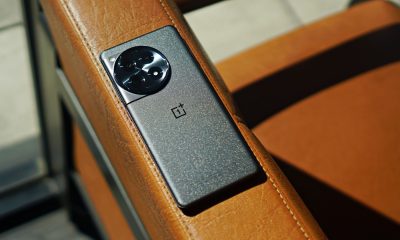
 Reviews4 days ago
Reviews4 days agoOnePlus 12R review: Making sense of OnePlus’ latest flagship
-
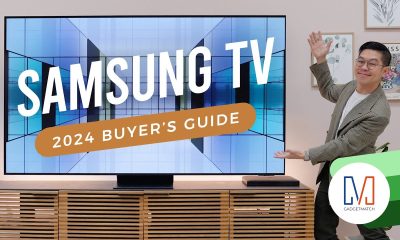
 Buyer's Guide2 weeks ago
Buyer's Guide2 weeks ago2024 Samsung TV: Buyer’s Guide
-
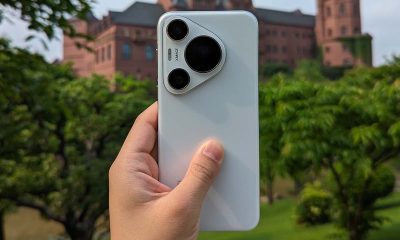
 Smartphones3 days ago
Smartphones3 days agoHuawei Pura 70 Pro Unboxing and First Impressions
-

 Reviews2 weeks ago
Reviews2 weeks agoJBL Soundgear Sense review: Make every run magical
-

 Reviews2 weeks ago
Reviews2 weeks agoChallengers review: A thrilling drama wrapped as a tennis anime
-

 Smartphones1 week ago
Smartphones1 week agoInfinix NOTE 40 Pro+ 5G: Philippine pricing, availability
-
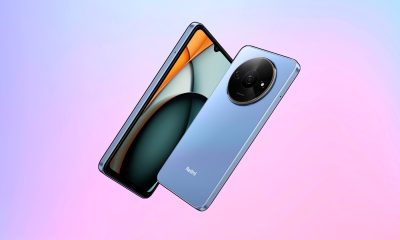
 News1 week ago
News1 week agoXiaomi Redmi A3 Philippine pricing, availability








